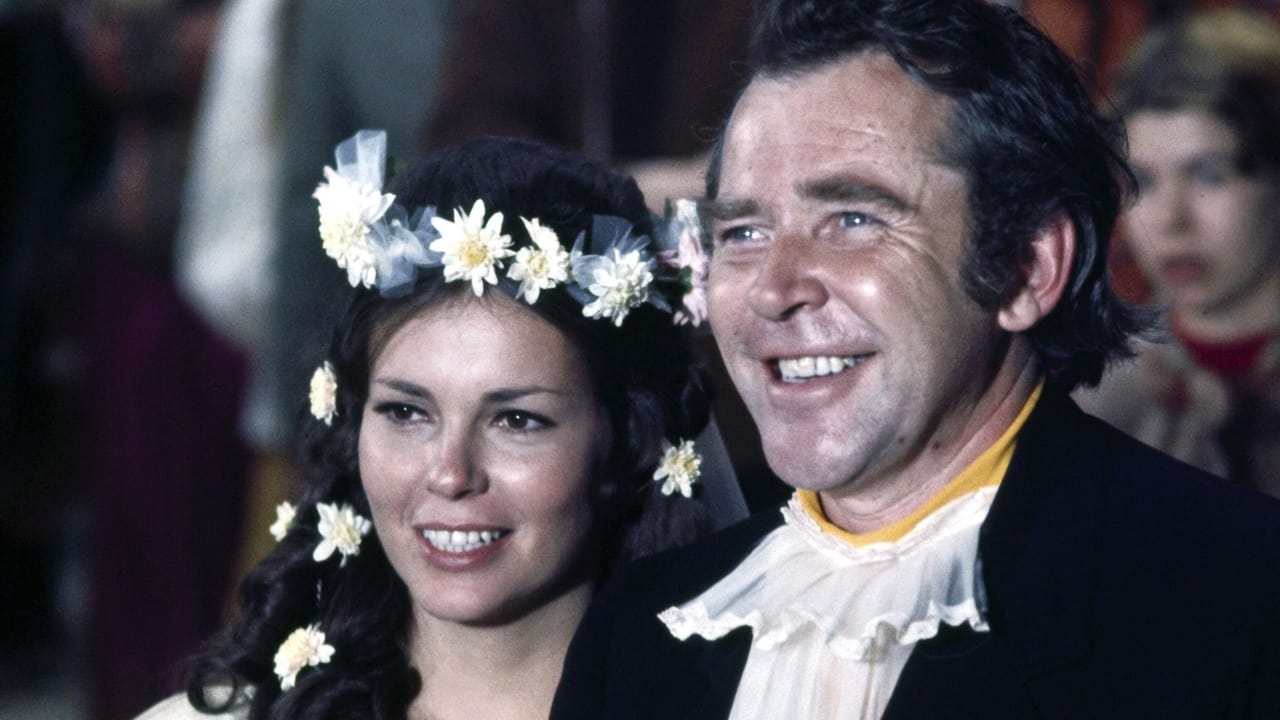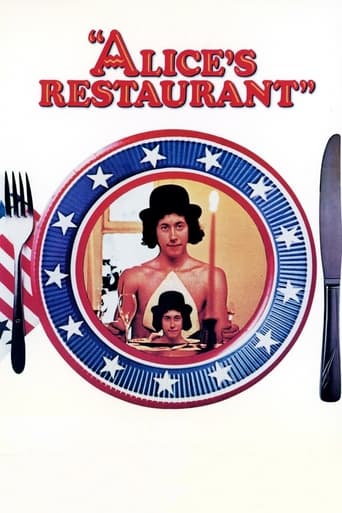



Sorry, this movie sucks
Brilliant and touching
I am only giving this movie a 1 for the great cast, though I can't imagine what any of them were thinking. This movie was horrible
View MoreExcellent and certainly provocative... If nothing else, the film is a real conversation starter.
View MoreIt's difficult, and somewhat unfair, to judge any artistic work based on the prejudices and attitudes of today, yet one can't go back in time and judge them from those of its own era. The best one can do is critique from known and accepted principles, in this case, a film, on acting, story and execution. On acting, it's hit and miss. The best actor is evened out by the worst, so it's a wash. On story, it's an idea, not a plot; a rambling series of incidents portraying the time--to that, it's a disjointed mess. Sad instead of poignant; whimsy instead of humor; bathos instead of drama. On execution, well it is Arthur Penn so it does have a certain flair, a certain style, yet it never catches hold; the themes are muddled and unclear; the characters are at times more pathetic and irritating than involving; oddly joyless. The editing is also haphazard. If Penn was going for "a statement" he instead created "a comment;" a cinematic throat-clearing. It's fine to make a film that creates more questions than answers, but the viewer is left to puzzle things out that shouldn't have been a puzzle, which just creates more mud. In the end, AR is of its time, one long past, and in hindsight perhaps best left on the shelf, for as the one thing the film does show is that "the hippie dream" was born in false freedom, filth, suspect mysticism and beliefs, and ended--like the movie--in confusion, sadness, heartbreak, and an eventual acceptance of society norms.
View MoreHaving listened to record a few hundred times, I was intrigued to see this movie. It turned out to be a visual representation of the song. The throwing away of the garbage in Stockbridge, the draft physical, the big dinner, and all that. It's a series of vignettes culled from the song. Arlo is really quite good. He has kind of a dizzy look about him. In a kind of Marx Bros. mentality, things fall apart around them but nothing ever seems to get to them. Of course, the most outrageous part is the effort of the police to find evidence against Guthrie and the litterers that shamed the investigation of the Kennedy assassination. It's a fun, relatively unmemorable movie that only means something to us sixties guys.
View MoreExcept for the bloody politician's war in Vietnam, I still have some affection for the '60's. The period was certainly a liberating experience from the uptight 1950's. However, viewed now apart from the hype of the time, Penn's movie has not worn well at all. It does convey something of the communal spirit of the day; plus the sweet-faced Guthrie has an appropriately congenial screen presence. But too many passages now seem pointlessly meandering, having lost whatever topicality they might have had. Another reviewer's comparison of the film with that of a home movie captures, I think, the basic flaw.Nonetheless, the movie manages a couple of amusingly revealing episodes. It's no surprise for the '60's, that both have to do with authority run amok. First the cops go to absurd lengths to convict Guthrie of littering, of all things; then in the film's highpoint, the tyrannical army- processing center treats him like a criminal. Though done satirically, each represents a popularly rebellious attitude of the time. Then too, unlike the rest of the film, the impact here is structured for effect. One other noteworthy point—it's no accident, I think, that it's a church the youngsters convert for their purposes. This can be understood as another subversion of authority by replacing the formal rules of authoritarian religion with those of the more easy-going humanism established by the communal restaurant. (At the same time, the sacramental wine of the former is replaced by a ceremonial joint that gets passed around.) Of course, without anything like formal rules, a downside is revealed once Alice ends up doing all the restaurant work, which the others happily shirk.The ending remains something of a puzzle. I take the forlorn bride (Alice) as a comment on the Hollywood cliché of 'they lived happily ever after'. Shrewdly, Penn doesn't want to leave us with the impression that a hippie ethic solves all social problems. Anyway, seeing the movie now, I realize how far into obscurity it has sunk after the big splash it made on initial release. For a much more entertaining and insightful glimpse of the period, check out Hal Ashby's mordant black comedy Harold and Maude (1972).
View MoreArthur Penn seems to portray the hippie culture in a very honest light. He doesn't directly appeal to the opinion of mainstream America, or the establishment "square" opinion of the counterculture, but rather appeals to the counterculture itself in the form of a cautionary tale. In Alice's Restaurant, he does not poke fun at and satirize the hippie culture like in I Love You, Alice B. Toklas!, nor does he dramatize it and glorify it like in Easy Rider. Instead, the hippie culture is portrayed in a series of events much like real life experiences of real hippies. At first, the youth gravitated towards the hippie culture and the commune system for its freedom, sexuality, and drug-use. However, as time wore on, the commune ideal began to crumble like many other communist societies do- hippies begin to realize they are leeches on society, and in their valiant efforts to 'stick it to the man,' they incidentally remain reliant on the establishment to live. Alice's restaurant portrays the joys of commune life. In two particular scenes- the Thanksgiving dinner and the final marriage ceremony- life as a hippie is free, careless, and exciting. Everyone is happy and relaxed, there are no problems, and they can freeload all they want. This appealed to many people in the counterculture, and the film even reinforced these sentiments. However, it also appealed to the establishment's ideals. In one scene, Arlo is thrown out of the window of a restaurant for having long hair, as long hair is the stigma of the counterculture movement. This reflects some of the violence of the establishment against the hippies, and demonstrates the daily struggles of being a member of the counterculture. This may have portrayed the establishment as evil and hateful, however by the end of the film, the opinion of the establishment is subtly expressed.As the film progresses, the audience begins to realize the pitfalls of the commune system. One member of the commune falls victim to drug addiction, and overdoses on heroin. His death shows a dark side of the counterculture that is rarely expressed- drugs can be a gritty and terrible thing, and with freedom comes much responsibility to keep such addictions at bay. Free love and drug use may be fun and care-free for awhile, but drug overdose and the epidemic of STDs clearly show that there are consequences for such a lifestyle. Also, on a much more subtle level, in the last shot of the film we see Alice longingly staring at the camera after Arlo has just left the commune. This takes place just after the marriage ceremony, which was the last effort of Alice's husband, Ray, to reinforce the commune ideal. As Ray romantically expresses his ideas of somehow opening another commune, Alice begins to realize the ultimate flaw of the counterculture, and despairingly awaits what will be come a terrible, fruitless marriage. Opening more communes certainly will not fix the problems of the current one- yet it is a common idea expressed by many communistic societies on the brink of destruction. If just one more- one more- commune were to be built, everything would be fine. Every commune begins well, but all suffer the same fate. Ultimately the members of the counterculture are freeloaders on the establishment society, and cannot survive once all resources have been used up in one place. Another commune in a different location may solve the problem momentarily, but unless the commune lives off the land and becomes self-sustaining, it will always fail. This is the limitation of the hippie culture, and this is exactly why such an alternative lifestyle is no longer widely existent today in America. It burnt itself out- and Arthur Penn offers this forlorn prediction in that final shot. Everything has fallen apart, Arlo has given up the commune life for the time being, and Ray is desperately grasping at straws to keep it together and stay sane and happy. Even though Alice has a Restaurant, and a way to make money, ultimately the very hippies they surround themselves with in the commune will suck it dry and move on. In Alice's Restaurant, the counterculture is revealed for what it truly is- fun, refreshing, and irresponsible. The "squares" may not have any fun, but they get things done. Ultimately, the establishment, with all its lousy rules and regulations, stigmas and dogmas, was right- and Penn did an excellent job of gently telling this to the counterculture. The hippie youth went to see the film and surely enjoyed it, but most likely left the theatre with a slight unease and a nagging sense of dread.
View More